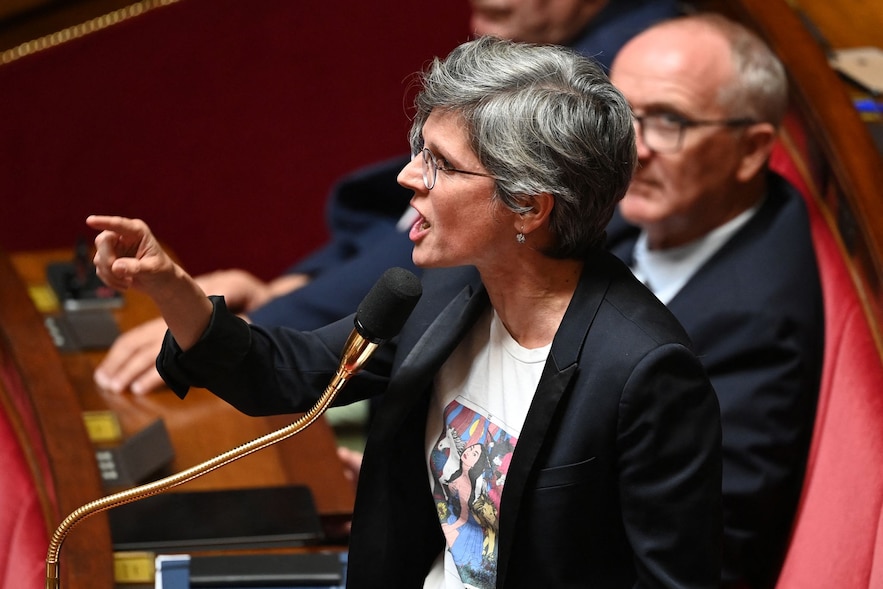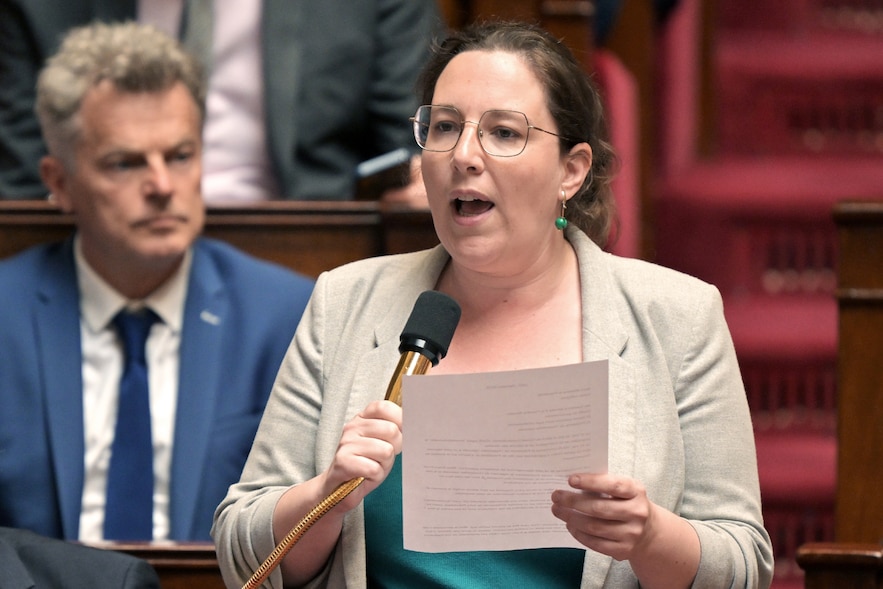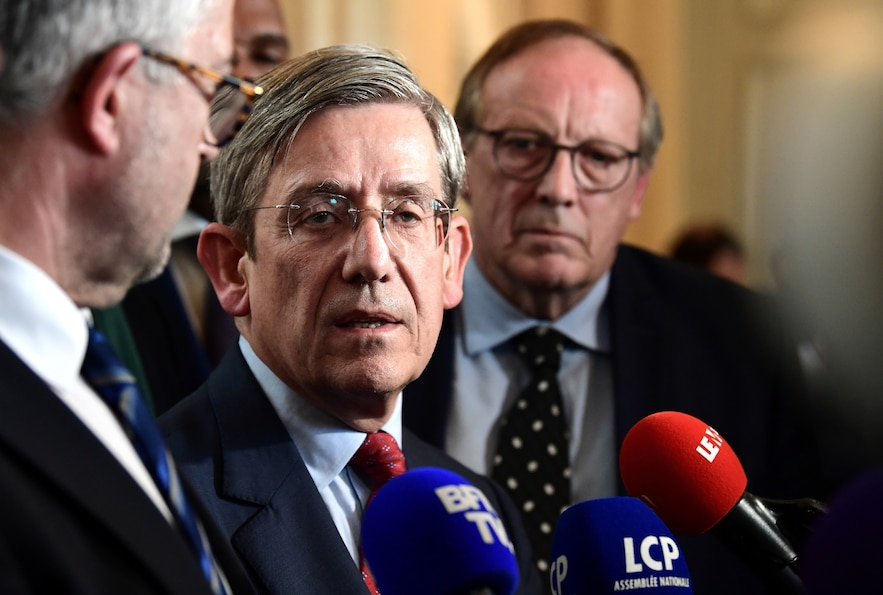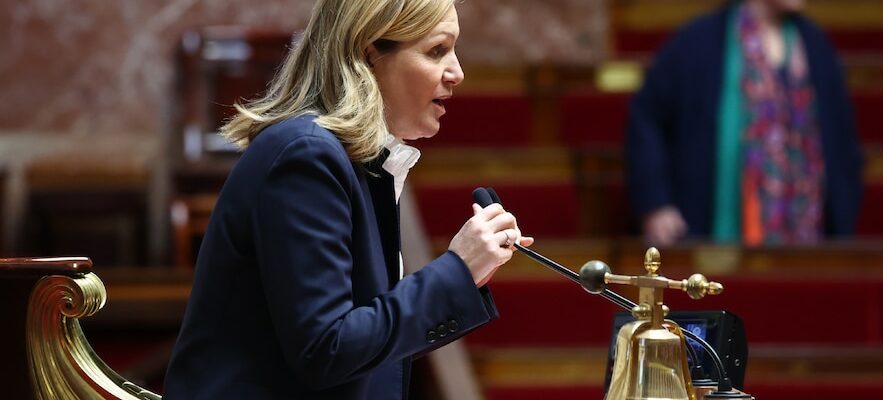A “real clarification” of the political situation. This is in any case what Emmanuel Macron hopes for following the election of the president of the National Assembly, scheduled for July 18. This personality, designated by his peers, could act as a unifier in a fragmented hemicycle.
The early legislative elections, on June 30 and July 7, resulted in a tripartite division of the lower house of Parliament. The Republican barrage made the left, by a short head, the leading political force in the National Assembly with 196 seats, according to the Cevipof figures. It allowed the presidential bloc to be saved (173 seats) and limited the ambitions of the National Rally and its allies (143 seats). No strong majority emerged, preventing the formation of any government.
One of the first tasks of the 17th legislature will nevertheless be to agree on a name to designate the future occupant of the perch. If deputies from different political parties reach a consensus, this would pave the way for a coalition to form a stable government, the president hopes. Here are the candidates to sit on the perch of the Palais Bourbon.
Yaël Braun-Pivet: candidate for her own succession
“If Yaël Braun-Pivet goes, we will not block it,” says a member of the Horizons party.
© / afp.com/Emmanuel Dunand
“If Yaël Braun-Pivet goes, we will not block her,” said a member of the Horizons party, according to comments reported by The Parisian. The candidacy of the elected representative of the French philippist Naïma Moutchou (4th constituency of Val-d’Oise) was considered for a time, but remains a hypothesis. For its part, the MoDem has not – for the moment – presented any candidates. The momentum therefore seems to be smiling on the outgoing president, Yaël Braun-Pivet, who could gather all the elements of Macronie behind her.
Member of Parliament for the 5th constituency of Yvelines since 2017, President of the National Assembly for the first two years of Emmanuel Macron’s term, Yaël Braun-Pivet has made a name for herself in Macronie. However, she was not the president’s favorite to succeed Richard Ferrand – he preferred Roland Lescure, the current Minister Delegate for Industry of France. She did not hesitate to express her disagreement with Emmanuel Macron following the dissolution.
“There was another path, that of a coalition, the President consciously considered that this path did not exist. I take note of this decision,” she declared on Télématin on June 10, at the very beginning of the campaign for the early legislative elections. And Yaël Braun-Pivet has not said her last word. On Thursday, July 11, she assured on France 2: “For two years, I have shown that I was capable of managing an Assembly without a majority. If I can be useful there, I will be.”
Sandrine Rousseau, self-proclaimed candidate

Sandrine Rousseau announced her candidacy to preside over the National Assembly on Monday, July 9, on Sud Radio.
© / Alain JOCARD / AFP
A high-profile figure and member of the Europe Ecologie Les Verts party, Sandrine Rousseau announced her candidacy to preside over the National Assembly on Monday, July 9, on Sud Radio. “We held on, we are responsible, we are strong,” defended the deputy for the 9th constituency of Paris, regarding the left-wing alliance. In front of Jean-Jacques Bourdin, she promised that the NFP would nominate a “consensual” candidate for the post of Prime Minister.
His candidacy for the perch raises again this question of unity within the alliance. “It comes down to the same balances [NDLR : que ceux de la nomination du candidat NFP à Matignon]”, she hastened to add after having initially answered affirmatively to the question: “Could you be a candidate for the presidency of the National Assembly?”
“I think I would respect democratic balances much more than has been done up to now,” she continued, already projecting herself into the role.
Cyrielle Châtelain, guarantor of the unity of the New Popular Front?

The leader of the Green Party deputies, Cyrielle Chatelain, addresses the government at the National Assembly in Paris, May 30, 2023
© / afp.com/Alain JOCARD
“The far right is not compatible with the Republic. The National Rally must not occupy any position in this National Assembly,” Cyrielle Châtelain snapped in front of the Palais Bourbon on July 9. “Chatelain is emerging as a consensus candidate. She represents a point of balance between the socialists and the rebels. If it’s Chatelain, we have more chances than if it’s Panot,” assures a Greens executive, in the columns of Parisian.
For the moment, the president of the parliamentary group Les Ecologistes in the previous legislature has not wished to confirm. “We have not discussed it yet. The time is not for individual destinies but for the collective,” continued the deputy of the 2nd constituency of Isère. Supporter of Eric Piolle in 2021, during the Greens primary for the presidential election, she arrived in the hemicycle in 2022. By beating the outgoing Macronist candidate, she helped to defeat Emmanuel Macron of his absolute majority.
Charles de Courson, the troublemaker of pension reform

Charles de Courson, member of the independent Liot group, on March 20, 2023 at the National Assembly, in Paris
© / afp.com/BERTRAND GUAY
A member of the parliamentary group Liberties, Independents, Overseas and Territories (Liot) in the previous legislature, he was one of the actors behind the motion of censure which threatened to bring down the government during the pension reform.”
He announced his candidacy in an interview with Parisian. His exchanges with the government during the pension reform could attract the sympathy of left-wing elected officials. He too has already projected himself nesting in the perch. His ambition: “to strengthen Parliament” and “finally guarantee its independence from the executive”.
